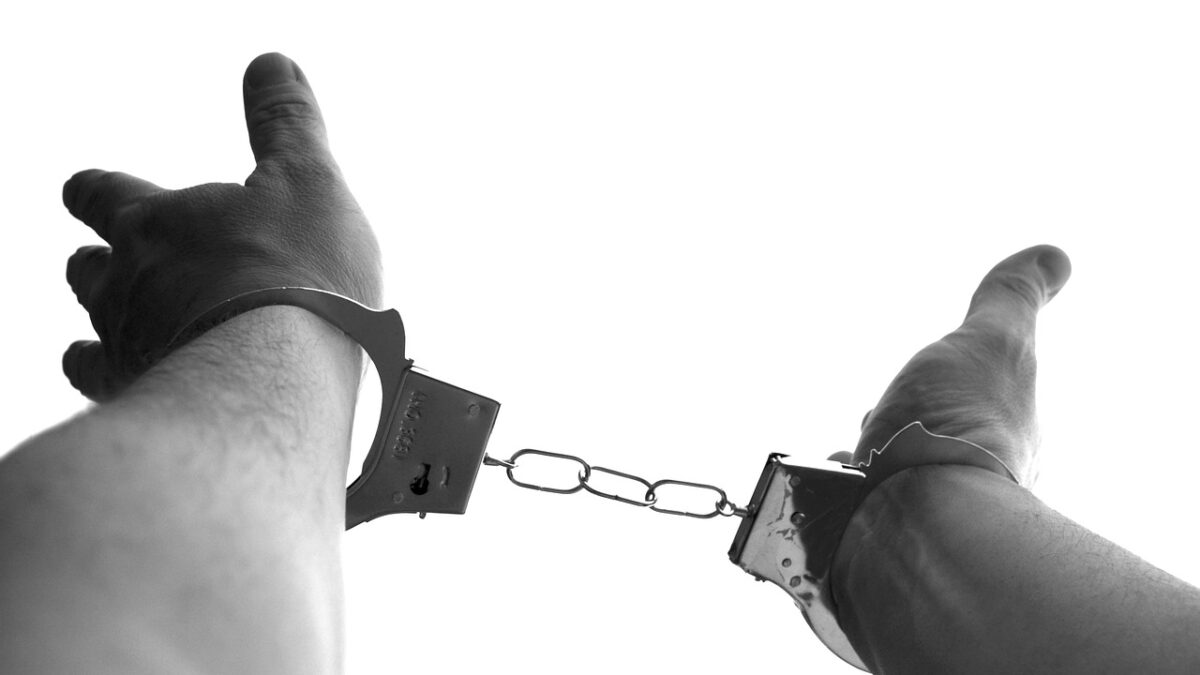
Criminal Threats Law 101: Essential Knowledge for Every Student
November 30, 2023
How to Navigate Parenting Arrangements After Separation
November 30, 2023Have you ever wondered, “What do criminal lawyers do?” Criminal lawyers play an essential role in our justice system, providing legal representation and guidance to those charged with various offences.
In this blog post, we will delve into the diverse world of criminal law, highlighting the different types of legal matters that criminal lawyers handle and the crucial part they play in ensuring justice is served.
Types of Matters Handled by Criminal Lawyers
A leading criminal law firm handles a wide array of legal matters within the realm of criminal law, ranging from general criminal offences to more specialized cases like white-collar crimes and drug offences. Their role is to ensure that those accused of crimes have equitable access to justice within the criminal justice system. Choosing a competent and experienced criminal defence lawyer significantly enhances your chances of a favourable outcome and reduces potential risks associated with criminal charges.
With vast experience in handling cases, criminal lawyers perform a variety of daily duties, including:
- Client meetings
- Crime scene investigations
- Independent inquiries
- Communication with the Crown Prosecutor
General Criminal Offenses
General criminal offences encompass a range of common crimes such as theft, assault, and burglary, which are considered criminal offences. A criminal lawyer’s role in theft cases involves providing legal aid and representation, gathering evidence, analyzing the case, and negotiating with the prosecution to present a strong defence in court for their client charged with theft. In assault cases, a criminal defence lawyer is responsible for defending the accused person, possessing a comprehensive comprehension of the relevant laws, and working to negotiate with the prosecution.
When it comes to burglary cases, a criminal lawyer provides legal representation and defence for individuals accused of burglary, ensuring a fair trial, gathering evidence, analyzing the prosecution’s case, and advocating for their client’s rights and interests throughout the legal process.
Reputable criminal defence lawyers in Brisbane can help clients navigate these defences and achieve the best possible outcome. Working with skilled criminal lawyers who offer customized advice and guidance can ensure the protection of your rights and the optimal presentation of your case.
Traffic Offences
Traffic law offences require criminal lawyers to represent clients in cases involving the dangerous operation of a motor vehicle and other related driving charges. Police officers possess extensive authority when dealing with traffic-related offences, and criminal lawyers who have undergone practical legal training can help clients understand legal rights and navigate these complex situations. The typical penalties for traffic violations in Australia may include:
- Fines
- Demerit points
- License disqualification
- Confiscation or impounding of the vehicle, depending on the offence
Criminal lawyers may utilize a variety of tactics when challenging police evidence or traffic charges in court, such as:
- Examining the evidence
- Questioning procedural errors
- Cross-examining witnesses
- Introducing expert testimony
- Asserting constitutional violations
In traffic offence cases, challenging the prosecution’s evidence, arguing necessity, reasonable doubt and asserting an honest mistake are common strategies. Skilled criminal defence lawyers can guide clients through these defences to seek the best possible result.
White-Collar Crimes
White-collar crimes refer to a range of financially motivated criminal matters, including fraud, embezzlement, and money laundering. Some examples of white-collar crimes include health care fraud, corporate fraud, money laundering, securities and commodities fraud, mortgage and financial institution fraud, fraud, embezzlement, insider trading, bribery, and cybercrime. These very serious crimes often require specialized knowledge and experience in legal practice to effectively defend clients.
The legal repercussions of white-collar crimes can include:
- Prison sentences
- Probation
- Fines
- Restitution
- Community service
- Payment for the cost of prosecution
- Surrendering any gains from the crime
The gravity of the repercussions of criminal prosecution may depend on the crime committed. A strong criminal defence can help mitigate these consequences, ensuring that clients have the best possible chance of achieving a favourable outcome in their case.
Drug Offences
Drug offences involve criminal lawyers providing legal representation and defence strategies for clients facing charges related to drug possession, trafficking, manufacturing, and cultivation. Some of the most common types of drug offences that criminal lawyers handle include:
- Possession of illegal drugs
- Drug trafficking
- Drug manufacturing
- Drug distribution
Criminal lawyers, through close collaboration with their clients and building robust defences, assist clients in navigating the legal process to seek the best possible outcome. Their expertise, often backed by a law degree, plays a crucial role in providing effective, legal services and representation.
Assault and Violent Crimes
Assault and violent offences cover a broad range of conduct, from basic physical altercation to much graver actions, such as homicide or murder. Each offence comes with its own set of complex laws and statutes that dictate the severity of the crime and possible repercussions. The legal definitions of assault, manslaughter, and murder are as follows:
- Assault is the intentional act of causing apprehension of harmful or offensive contact or intentionally causing physical injury to another person.
- Manslaughter is the unlawful killing of another person without the intent to kill, usually as a result of negligence or recklessness.
- Murder is the unlawful killing of another person with the intent to kill or cause serious harm, or with reckless indifference to human life.
Regardless of the crime or evidence, criminal lawyers aim to mount a robust defence for clients accused of assault and violent crimes. This can involve:
- Challenging the prosecution’s evidence
- Cross-examining witnesses
- Proposing alternative theories
- Exploring potential defences like self-defence or mistaken identity
All with the ultimate goal of protecting the client’s rights and seeking the best and most favourable outcome possible in the Supreme Court.
Domestic Violence Cases
Domestic violence cases involve Brisbane criminal law matters, lawyers understanding the charges and legal proceedings, defending clients accused of domestic violence, and prioritizing their safety and well-being. Domestic Violence Lawyers in Brisbane typically handle a range of Domestic Violence matters, such as the application for Domestic Violence Orders, varying existing Orders, and defending clients against Orders.
Criminal lawyers take a sensitive approach to domestic violence cases, as they typically involve intricate emotional complexities. When defending a client in a domestic violence case, prosecution lawyer say the following steps are critical:
- Gathering evidence
- Developing a defence strategy
- Advocating in court
- Potential negotiation with the prosecution
Criminal lawyers aim to ensure client safety and well-being, leveraging their knowledge of domestic violence legal issues and, effective instruction-taking abilities, practical strategy implementation, advocacy for client rights, and prevention of legal process and resource misuse.
Juvenile Offences
Juvenile offences require criminal lawyers to navigate the juvenile justice system in Australia, representing young clients and ensuring their rights are protected. The juvenile justice system in Australia encompasses a set of processes and practices for managing children and young people who have committed or allegedly committed, offences. Each state and territory in Australia has its own youth justice legislation, policies, and practices, but the general processes for dealing with young offenders are largely consistent across the country.
The primary aim of the system is to:
- Identify and address the underlying causes of offending
- Provide rehabilitation and support for young offenders
- Focus on prevention and early intervention
- Promote the well-being and best interests of the young person
Rather than focusing solely on punishment, the juvenile justice system aims to provide young offenders with the necessary support and resources to help them reintegrate into society and prevent future offending.
In cases of juvenile offences, criminal lawyers in Australia:
- Represent young people involved in Youth Court criminal cases
- Champion the rights and interests of young offenders
- Contest evidence
- Guarantee a fair legal process throughout court proceedings
- Through close collaboration with their clients and advocating for their rights, criminal lawyers are key to protecting young people’s rights within the juvenile justice system.
Dangerous Operation of a Motor Vehicle
Dangerous operation of a motor vehicle involves:
- Criminal lawyers understand the definition and legal consequences of this offence
- Defending clients against dangerous driving charges
- Working to achieve the best possible outcome
The charge of dangerous operation of a motor vehicle under Australian law denotes operating a vehicle in a manner that is perilous to the public or other road users. It is considered a grave criminal offence and can lead to penalties such as fines and imprisonment.
When defending against charges of Dangerous Operation of a Motor Vehicle, criminal lawyers offer expert legal representation, rights safeguarding, police investigation, and immediate assistance. Their extensive experience in defending all driving matters, including those involving dangerous driving, enables them to guide clients through the legal process, collect evidence, challenge the prosecution, provide legal advice and build a solid defence strategy.
Conclusion
Criminal lawyers play a vital role in representing clients across various legal matters, ensuring their rights are protected and helping them navigate the complexities of the justice system. From general criminal offences and traffic violations to white-collar crimes and juvenile cases, criminal lawyers provide invaluable legal representation and guidance to those facing serious charges and criminal proceedings. By understanding the nuances of each case and building strong defence strategies, criminal lawyers work tirelessly to achieve the best possible outcome for their clients.



